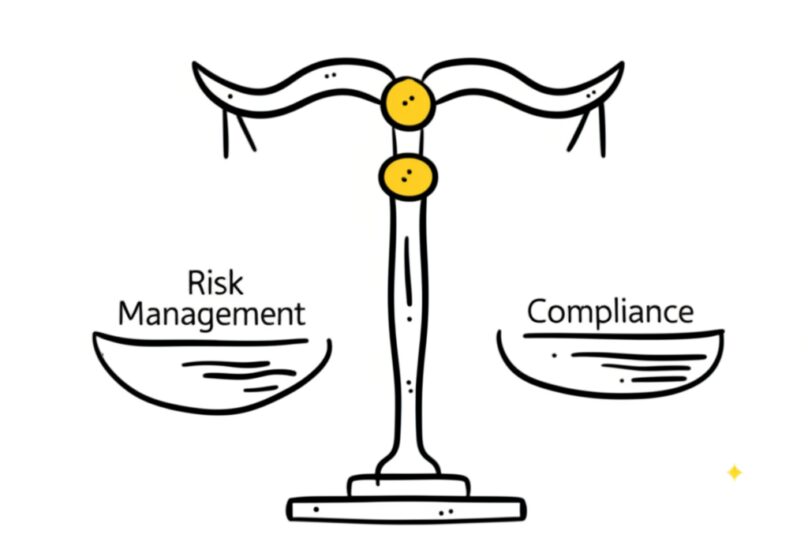Breaking down Risk Management & Compliance

Breaking Down Risk Management & Compliance: A Practical Guide for Indian Businesses
Running a business in India, especially in Tamil Nadu, comes with its own set of challenges. From navigating complex regulations to managing unforeseen events, understanding and implementing robust risk management and compliance strategies is crucial for success. This post will break down these concepts in a simple, easy-to-understand way, using real-world examples from Tamil Nadu businesses.
What is Risk Management?
Imagine you’re building a sandcastle on the beach. Risks are like the waves – they can wash away your hard work! Risk management is all about identifying those waves (potential problems), figuring out how big they are (how much damage they could cause), and building defenses (strategies to protect your business). It’s about being prepared for anything that could go wrong.
Types of Risks in Business:
- Financial Risks: Running out of money, bad debts from customers, fluctuating currency exchange rates.
- Operational Risks: Problems with your supply chain, equipment malfunctions, employee errors.
- Reputational Risks: Negative publicity, customer complaints, damage to your brand image. Think of a recent food safety scandal affecting a restaurant in Chennai – that’s reputational risk.
- Legal & Compliance Risks: Breaking laws and regulations, facing fines or lawsuits. For example, not following labor laws in your Coimbatore factory could lead to legal trouble.
- Strategic Risks: Making wrong business decisions, failing to adapt to market changes, losing market share to competitors.
Risk Management Strategies:
- Identify Risks: Brainstorm potential problems. Ask yourself: What could go wrong? Use checklists and past experience to guide you.
- Analyze Risks: How likely is each risk to happen? How much damage could it cause? Prioritize the most serious risks.
- Respond to Risks: This is where you develop your defenses:
- Avoidance: Completely avoid the activity that creates the risk.
- Mitigation: Reduce the likelihood or impact of the risk. (Example: Investing in backup power generators to avoid production downtime during power cuts)
- Transfer: Shift the risk to someone else (e.g., buying insurance).
- Acceptance: Accept the risk and budget for potential losses.
- Monitor and Review: Regularly check your risk management plan. Are your defenses still effective? Do you need to adjust your strategies?
Compliance: Following the Rules
Compliance means following all the relevant laws and regulations that apply to your business. In India, this involves many aspects, from tax regulations to labor laws, environmental protection, and data privacy. Non-compliance can lead to hefty fines, legal battles, and damage to your reputation.
How to Ensure Compliance:
- Stay Updated: Keep track of changes in laws and regulations. Subscribe to relevant newsletters and consult legal professionals.
- Develop Internal Policies: Create clear internal policies and procedures that align with legal requirements.
- Train Employees: Make sure your staff understands the rules and how to follow them.
- Regular Audits: Conduct regular internal audits to identify any compliance gaps.
- Engage Experts: Seek help from legal and compliance professionals to navigate the complexities of Indian regulations.
Real-World Examples from Tamil Nadu:
Imagine a textile factory in Tirupur implementing robust safety measures to comply with labor laws and reduce workplace accidents. Or a software company in Chennai implementing strong data security measures to comply with data protection regulations. These are examples of how businesses in Tamil Nadu proactively manage risks and ensure compliance.
Conclusion:
Risk management and compliance aren’t just about avoiding trouble; they’re about building a strong, sustainable business. By proactively identifying, analyzing, and responding to risks, and by ensuring compliance with all relevant regulations, businesses in Tamil Nadu can thrive in a competitive and ever-changing market. Remember, a little preparation can go a long way in protecting your business and its future.
